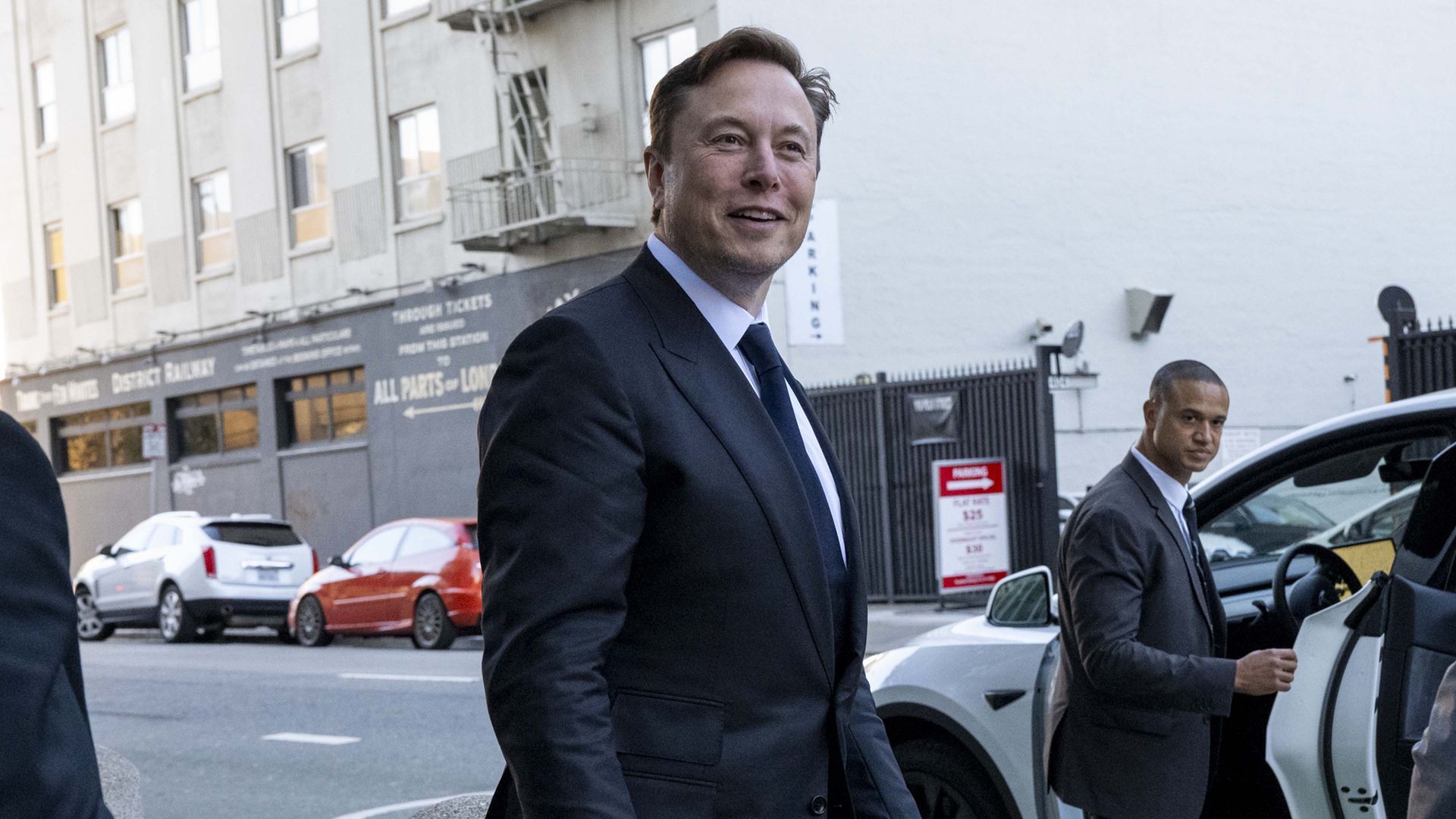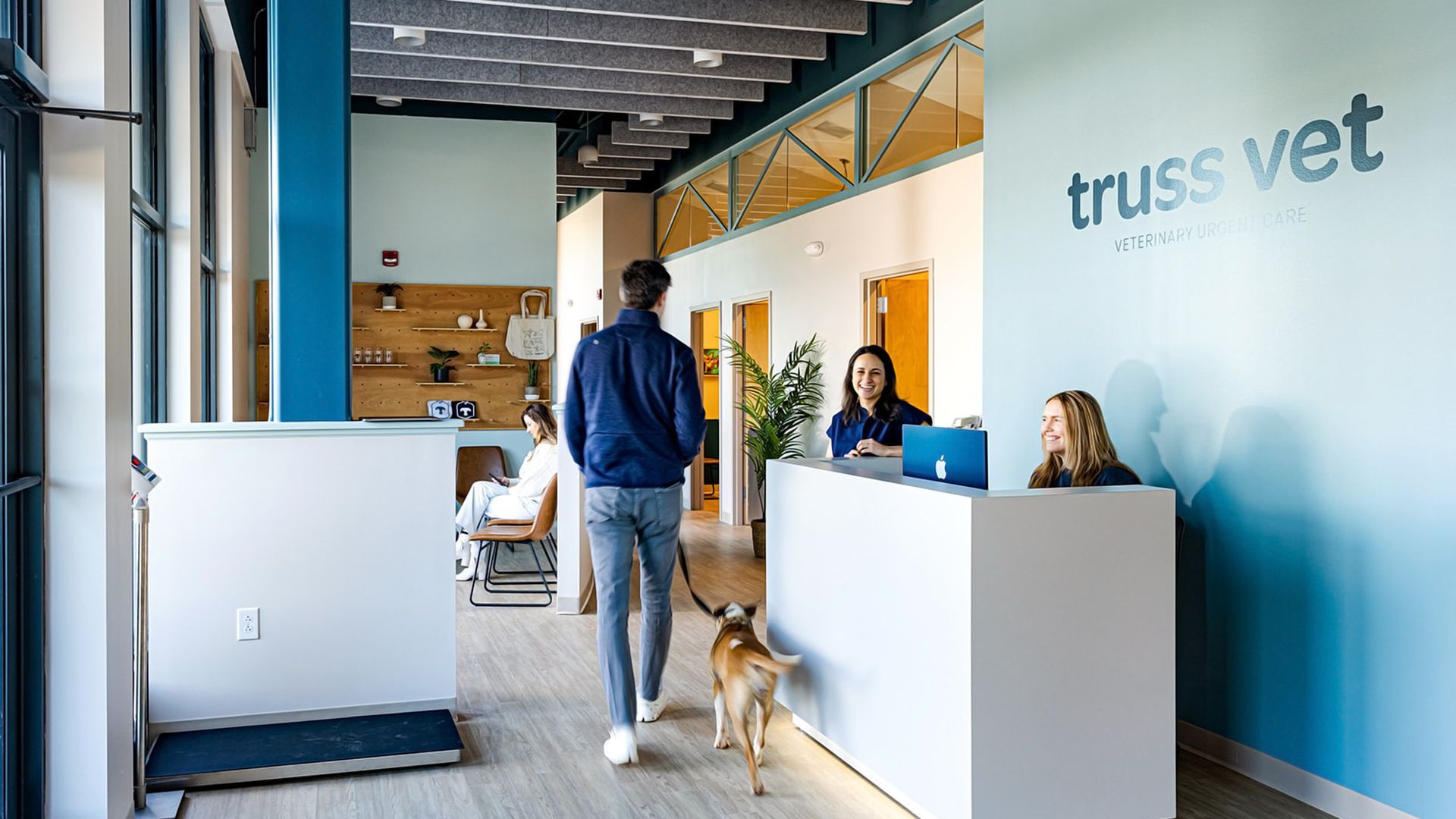| | | | | | | Presented By Deloitte | | | | Axios What's Next | | By Jennifer A. Kingson, Joann Muller and Alex Fitzpatrick · Jan 27, 2023 | | The end of the ultra-manicured college quad could be nigh, Jennifer reports today, as the "no lawn" movement hits campuses nationwide. Today's newsletter is 1,141 words ... 4 minutes. | | | | | | 1 big thing: Pushing colleges to go wild |  | | | Illustration: Shoshana Gordon/Axios | | | | A new environmental movement has college students beseeching school officials to switch to organic lawn care — or let well-manicured campus quads grow wild, Jennifer A. Kingson reports. Why it matters: Concerns about pesticides, chemical fertilizers, and herbicides such as Roundup have been upending landscaping, and the students' efforts could boost the move toward natural lawn care. - An additional concern: drought, which has people ripping up their lawns in favor of succulents, wildflowers, and native flora.
Driving the news: A young, small organization called Re:wild Your Campus is leading the charge. - It's offering fellowships and encouraging college students to push administrators and groundskeepers to switch to vinegar-based lawn care products, embrace composting, and more.
- Its first victory came in 2018, when students convinced the University of California, Berkeley, to switch to organic land management. (It's now 95% organic.)
- A recent win at Grinnell College in Iowa involved restoring native prairie grasses on a 5,000-square-foot campus plot.
Where it stands: Re:Wild Your Campus has endowed 11 fellows on campuses in 10 states this year, including at Princeton University, Drexel University, the University of Michigan, and the University of North Carolina, Chapel Hill. What they're saying: "Students are enthusiastic about this — they're excited about working on a tangible issue that connects to climate change and biodiversity loss," Sheina Crystal, the group's director of communications and campaigns, tells Axios. - The goal is to get schools to "transition to organic land care with the integration of more rewilded spaces on campus."
- Organic land care "fosters biodiversity; protects the health of students, groundskeepers, and campus communities; supports pollinators; and has the potential to mitigate climate change," the group wrote in its progress report.
The other side: School officials are "usually pretty resistant at first" and "have a lot of misconceptions" about the proposed changes, Crystal tells Axios. - They perceive alternatives to conventional lawn care as ineffective, expensive, and ugly — potentially ruining the pretty campuses that attract students and alumni dollars.
The big picture: There's a battle over lawns playing out nationally, as homeowners and communities try to balance aesthetics with health and environmental concerns. - A first-of-its-kind Nevada law requires that certain patches of grass be replaced with desert-friendly alternatives.
- Programs like "No Mow May" encourage people to let their lawns go natural for a month to build habitats for pollinators.
- On the other side, a homeowners association in Maryland demanded that one family "rip out their native plant beds, and replace them with grass," as the New York Times reported.
Flashback: Harvard College was in the vanguard when it pivoted to organic lawn care in 2008. - The effects were noticeable just a year later: "The organically grown grass on campus is now green from the microbes that feed the soil, eliminating the use of synthetic nitrogen, the base of most commercial fertilizers," the Times reported.
The bottom line: Movements that start on campus often radiate more broadly into society. - "We're trying to make this an issue that's really at the forefront of people's consciousness when considering a college," Crystal said.
Share this story. |     | | | | | | 2. Mercedes goes hands-free |  | | | A Mercedes-Benz vehicle with Drive Pilot technology. Photo courtesy of Mercedez-Benz | | | | Mercedes-Benz has received the first U.S. approval for a fully hands-off driving feature, the company said Thursday, Alex Fitzpatrick reports. - The system, called Drive Pilot, allows drivers to take their hands completely off the wheel in certain conditions.
- When enabled, drivers can read a book, play a game — whatever.
Why it matters: Other driver-assist technologies, like Tesla's Autopilot, require drivers to pay attention and keep their hands on the wheel at all times. Yes, but: So far, Nevada is the only U.S. state to have approved Drive Pilot. - Plus, it only works on highways at speeds under 40 miles per hour — meaning it's most useful during situations like traffic jams.
What's next: Drive Pilot will be available in the U.S. on the company's 2024 EQS and S-class sedans. - The automaker is trying to get the feature OKed in California, too.
|     | | | | | | 3. Tesla shifts from disruptor to incumbent |  | | | Tesla CEO Elon Musk departs court in San Francisco on Tuesday. Photo: Marlena Sloss/Bloomberg via Getty Images | | | | Tesla is increasingly doing things by the book as it becomes a bigger, more mature company, Axios' Nathan Bomey writes. Why it matters: The automaker has long stood head and shoulders above the crowd in the electric vehicle industry, effectively directing the current. - Now it's looking more and more like a traditional company as it grapples with demand challenges, increased competition, and choppy market conditions.
State of play: In its fourth-quarter earnings report Wednesday, Tesla signaled that it's stepping back from some of its high-flying tech company ways. - It's juicing demand by lowering prices, as traditional automakers often do.
- It's emphasizing the need for cost prudence, mirroring how mature car companies constantly trim their budgetary fat.
- It announced plans to move away from its tradition of bunching vehicle sales toward the end of each quarter — a strategy it often deployed to meet or exceed sales targets, but which had a punishing effect on workers.
What's next: More products — which analysts say are crucial as Tesla's lineup ages. - Musk said the company's long-awaited Cybertruck would begin production as soon as this summer.
- And the company said it will provide "additional details" on March 1 about its "next-generation vehicle platform."
Read the rest. |     | | | | | | A message from Deloitte | | Don't just dream it — build it | | |  | | | | Unlock technology as powerful as your vision and push the boundaries of the possible with Deloitte. Our practiced human experience combined with innovative technology can help you build tomorrow — today. Let's build the future together. Learn how Deloitte can help you Engineer Advantage. | | | | | | 4. Underwater bike garage |  | | | A view of Amsterdam's Centraal Station in January 2022. Photo: Nicolas Economou/NurPhoto via Getty Images | | | | A unique underwater bicycle garage has opened up at Amsterdam's Centraal Station, Bloomberg reports. - It can hold up to 7,000 bikes, cost $65.3 million to build, and offers free bike parking for the first 24 hours.
Details: The new garage is intended in part to relieve congestion at the consistently jammed street-level bike parking area outside Amsterdam's main train station. - It was built as part of a broader, four-year effort to emphasize the natural waterways in the area around Centraal Station while making more room for pedestrians and cyclists.
The big picture: It's yet another example of Amsterdam's decision-making that puts the emphasis on people and mass transit, not cars. |     | | | | | | 5. Urgent care for pets |  | | | Photo courtesy of Truss Vet | | | | Truss Vet, a new urgent care center for pets aiming to fill the gap between veterinarians and 24-hour emergency animal hospitals, has opened up shop in Cary, N.C., Axios' Zachery Eanes reports. Driving the news: Urgent care centers for humans have exploded in popularity, thanks in part to their extended hours and walk-in service. - Truss Vet's founders believe the same dynamic could exist for pet owners.
What they're saying: When your dog is vomiting on a random Tuesday morning, co-founder CJ Casselli tells Axios, Truss Vet wants to be just a few clicks away. - Most vets are still scheduling visits over the phone, he says, when people are increasingly doing everything online.
- "A lot of consumers just want to wake up, book something online, walk right in, and then be seen quickly," Casselli says. "We're trying to offer that experience."
What's next: Casselli and his fellow co-founder Brad Waffa believe the concept could be replicated elsewhere. Share this story. |     | | | | | | A message from Deloitte | | Let's build the future together | | |  | | | | In the business world, you can either build your own future or bet on someone else's. Stay a step ahead with the latest innovations in technology and the thinking to help you transform what's next into what's now. Don't just bet on the future, build it. Learn how Deloitte can help you Engineer Advantage. | | | | Big thanks to today's What's Next copy editor, Patricia Guadalupe. Was this email forwarded to you? Get your daily dose of What's Next by signing up here for our free newsletter. |  | | Are you a fan of this email format? Your essential communications — to staff, clients and other stakeholders — can have the same style. Axios HQ, a powerful platform, will help you do it. | | | | | | Axios thanks our partners for supporting our newsletters.
Sponsorship has no influence on editorial content. Axios, 3100 Clarendon Blvd, Arlington VA 22201 | | | You received this email because you signed up for newsletters from Axios.
To stop receiving this newsletter, unsubscribe or manage your email preferences. | | | Was this email forwarded to you?
Sign up now to get Axios in your inbox. | | | | Follow Axios on social media:    | | | | | |










No comments:
Post a Comment